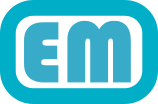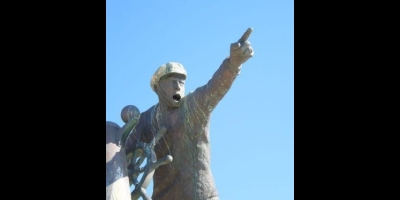Why read this article?
- To find out what this site can do for you, particularly if you care about education
- To help you navigate between introductory material and more advanced articles
- To encourage you to ask questions and enter discussions
- To find out how to have access to like-minded people who you can engage with in the conversation.

The contents of the article
- The first purpose of this site is to give ready access to useful answers to the question “what is education”? – and to explain the workings of the concept
- How common it is that people are unclear about what “education” really means
- How poor the available answers to this are, as if no-one really expects it to make any difference. Most “experts” give poor answers, and don’t appear to know or really care.
- Why there is a good deal at stake if we are careless about what education means
- How this site also offers more advanced and detailed resources for understanding and implementing education, and that this will grow
- How this should really be a joint effort, and the site a centre for achieving collaboration and communication to promote educational awareness and understanding.
- The freedom with which you can use these materials
This site is intended to fulfill two essential services
Firstly, it will provide a set of articles that provide a basic answer to the question “what is education”? This question is important. It seems clear that, though the bulk of the population may take the word “education” for granted, there are, nevertheless a large number of people who reach a point where they realize that they don’t know what it means, and that their confusion matters.
And it should matter, of course, because education absorbs a great deal of our collective time, energy and wealth, and the confusion and vagueness about its meaning that is so widespread isn’t a good sign. Whatever education is, it is unlikely to be a very effective enterprise so long as we are so unclear about what it is.
At an everyday level, it might seem that we can just leave all that to the experts. They are bound to know what education is, aren’t they?
Unfortunately, if you do make the effort and try to find out what it is that the experts know about this, you are likely to be disappointed. If you start to rub shoulders with “educational researchers” and “educational managers” and “policy makers”, (and, of course, trained teachers) the disturbing truth is that they are just as likely to be unclear about education as anyone else. At best they will offer those sorts of vague and general pieties about what it is that you find in dictionaries or popular discussions.
The papers here that address the question “what is education” are, therefore, both introductory (in the sense that they are only a first step for anyone who genuinely wants to develop educational understanding and awareness), while also being quite advanced – compared with conventional answers you are likely to receive. Conventionally, you can expect that the answer to the question “what is education” will be provided in a sentence or two, but here you will discover some thousands of words.
Of course, it is up to you whether to stick with the few sentences of a dictionary definition, or face up to reading these thousands of words. Perhaps the dictionary will do, if you just have to cobble together some dreary high school essay to pass an assessment. Then it is a matter of merely grabbing what you need and moving on. You mightn’t be worrying about actually learning anything. For such purposes, that might be good enough.
If you intend to take education seriously in any sort of way, however, I think you owe it to yourself to do more than a bit of reading here. If you are making a career of “education”, and you don’t take the time to really explore what it means, you could end up spending all of that career without really engaging in education at all. You might spend your whole career complicit in a great harm. You might spend this whole career indoctrinating instead – and never know it. Of course, they say that ignorance is bliss. I am not sure that this saying is a great deal of help to people who would be educators. Education is, of course, about you, but it is not just about you. The bliss of your ignorance may not be the bliss of those learners whose educational fates are under your care.
This site has a second, and larger purpose, however. Beyond the set of articles in the category “what is education”, which are intended as an entrée to the entire project, I will be building up a body of work to broaden and deepen the account of the purpose of education that I am providing, as well as exploring and suggesting practical applications. These will be sorted into other categories and can be accessed that way. Video and audio material may come in the future.
Equally, or even more importantly, I will be encouraging participation in this project. It needs to be collaborative. If you have read this far, it probably needs your help.
For most of my years with this project I have pushed on with it alone. I had extraordinary help and encouragement in the beginning, and I continued to be encouraged by the enthusiasm of my students. I learned heaps from them, and much of the writing, even now, is concerned with issues that I learned while working with them, and with things that I wish I had discussed with them. Without them it would have been hard to keep it alive, and I would have a much weaker sense of what I needed to do next. I would like that growth to continue.
I never intended this project simply to be mine. It is, to my mind, too important for that. For this reason, I continue to hope that others will come forward and contribute, each in their own best way. We need to change a whole popular, public and professional consciousness here, and that can only be done by a community. The richness of that community is what will be needed to find the difficulties in that larger social awareness, and to find the solutions. So please join, and contribute if you share my concern that our thinking about education is losing its way, and that it really does matter to us all that our collective idea of education is a strong and effective one.

While I will also ask that you respect the copyright of my articles, and acknowledge their use, please feel free to share and distribute them. Properly acknowledged, they are all freely available for educational purposes.
And if you do find the material at all useful, please do not hesitate to share that with others . . . and link back to me.
Many thanks
Graham


